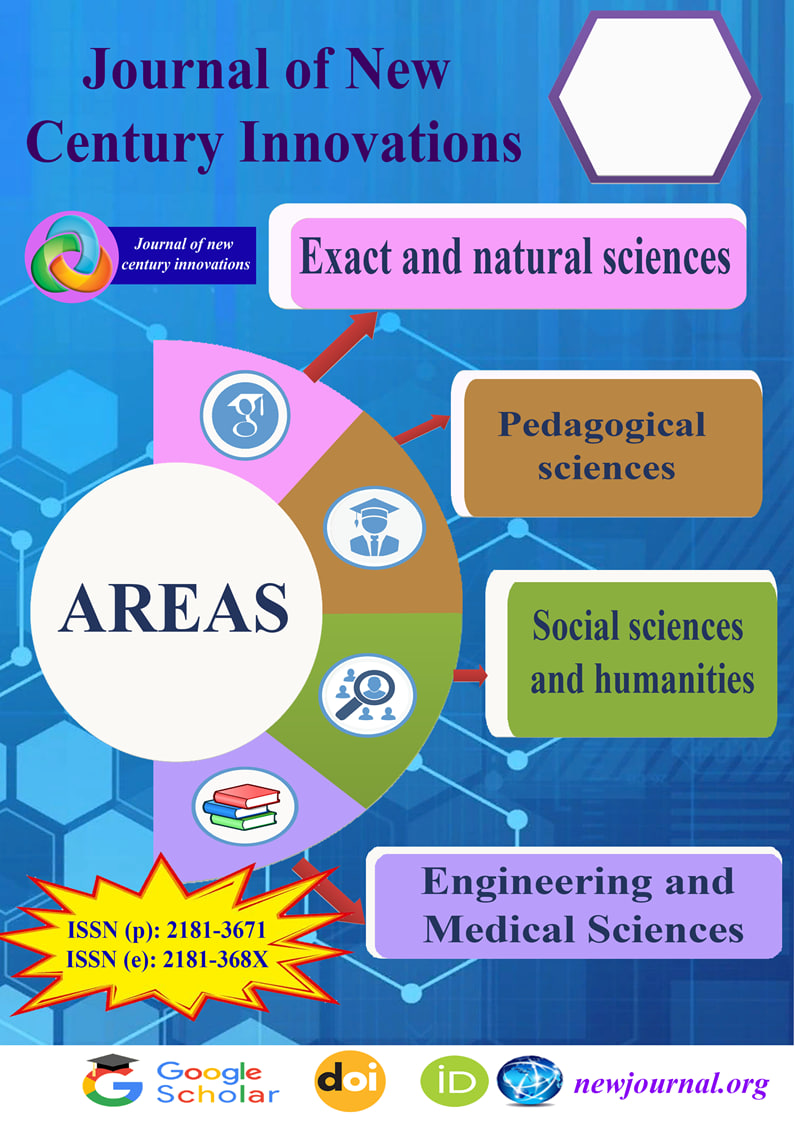THE IMPACT OF TECHNOLOGY FOR YOUNG GENERATIONS
Keywords:
Keywords: social skills and technology, the development of children through virtual, communication, both beneficial and detrimental effects, social engagementAbstract
This paper aims at investigating effect of technology on the social skills of children with consideration to the positive and negative ramifications. The incidental part played by technology in the upbringing of the young people means that it cannot be ignored. While various studies have established the impact of violent videos which result in reduced interactive communicative skills, it is also important that research has also established that technology can have positive impacts of social relationships, communication and creativity and learning. Thus, in this paper, the primary goal is to present an evaluation of technology advantages and disadvantages that children experience. This study consists of both quantitative and qualitative components: a cross-sectional online questionnaire of young adults and a systematic review of the literature. The results of the study show that although technology stands in the way of face-to-face interaction social skills and self-improvement they also afford an opportunity for self-development on the internet. Hailing from this study, more information for the ongoing discussion can be offered to educators, parents and policymakers on how the appraisal of positive and negative attachment to technology can influence children’s option to engage in virtual communication instead of face-to-face one with the purpose of enhancing their healthy development.
References
Adipat et al on 2021. 'Engaging Students in the Learning Process with Game-Based Learning: The Fundamental Concepts.' International Journal of Technology in Education, 4(3), pp. 542–552. doi: https [[]//doi.org/10.46328/ijte.169.
Alice, M., Mercedes Corona Fonseca, Freitas, J., Cristina, E. and Lisabelle Mariano Rossato (2023). 'Impacts caused by the use of screens during the COVID-19 pandemic in children and adolescents: an integrative review.' Revista Paulista De Pediatria, 42(2022;79(5):393-405. Licence information This work is licensed under Creative Common Attribution https://creativecommons. org/licenses/by/4. 0 International.
Benedek, M., Fink, A., & Neubauer, A.C., (2006). Title: ‘Realizing an Ideational Enhance Through The Use of Computer Based Training’. Creativity Research Journal, 18(3), pp. 317–328. doi: www.apa.org/.
Blanco-Herrera, J.A., Gentile, D.A. and Rokkum, J.N. (2019) Observed televisions: Content analyses of programming, advertisement, and packaging in the United States. Playing Video Games can make Kids more Creative, but there is a catch.’ Creativity Research Journal, 31(2), pp. 119–131. doi: https://doi-org.agnes.lib.duke.edu/10.1080/10400419.2019.1594524.
Cohen, J. et al. (1969). It is about ‘the effect which social interaction has on communication as well as social skill’. Vol 77 No 1 Journal of Social Psychology page 111-124.
Cole L., Stevenson G. and Tannenbaum L. (2013) 'Social Media as a Platform for Social Support: Section: Effects on Social Interaction. Journal of Online Behavior 15.4 (2011): 295-307.
Donohue, M. (2015). Programs, Educational – Development of Social Skills in Children and Adolescents. Journal of Educational Psychology 29(2) February 1938, pps 250–267.
Eirich, R. M. McArthur, B. A., Anhorn, C., McGuinness, C., Christakis, D. A. & Madigan, Z. ’Screen Time and Internalizing and Externalizing Behavior Problems in Children 12 Years Old or Younger.’ JAMA Psychiatry, 79(5). doi: https://doi.org/10.1001/jamapsychiatry.2022.0155.
Writing about creativity: A method for inspiring innovation and designing creative BEANs. Creativity and Innovation Management, 27(3), pp.396-412. ’Sociocultural Approaches to Creativity, Learning and Technology’. Creativity Under Duress in Education?, pp. 63–82. doi: [ online ”Available at: https://doi.org/10.1007/978-3-319-90272-2_4].
Jalaleddin Hamissi, M., et al. (2013). Gender Differences in the Use of Internet and Online Activities. Jour of Social Psychology, vol 140, no 2, pp 195-207
Lopes, C., Santos, L., Fernandes S. (2004). The second one is ‘Online Communities and Social Skills Development’ Journal of Social Behavior, 29, 4, pp. 241-257.
McIntyre, S., Lee, C., and Walker, D. (2015). 'The Impact of Internet Addiction on Social Interaction and Communication Skills.' Journal of Technology in Society, 23(3), pp. 202-213.
Mária Bajúzová and Hrmo, R. (2024). 'Digital Tools in Education.' R&E-SOURCE, pp. 4–18. doi: https://doi.org/10.53349/resource.2024.is1.a1236.
Piotrowski, J. (2015). 'Social Connectivity During the COVID-19 Pandemic: A Study of Digital Media Use.' Journal of Health Communication, 22(9), pp. 890-904.
Primack, B. et al. (2017). 'Social Media Use and Its Relationship with Social Anxiety and Self-Esteem.' Journal of Clinical Psychology, 56(7), pp. 681-693.
Verduyn, P. et al. (2015). 'The Impact of Social Media on Self-Comparisons and Mental Health.' Cyberpsychology, Behavior, and Social Networking, 18(6), pp. 361-367.
Ventouris, A., Panourgia, C. and Hodge, S. (2021). 'Teachers’ perceptions of the impact of technology on children and young people’s emotions and behaviours.' International Journal of Educational Research Open, 2-2(100081), p. 100081. doi: https://doi.org/10.1016/j.ijedro.2021.100081.
Xie, G., Deng, Q., Cao, J. and Chang, Q. (2020). 'Digital screen time and its effect on preschoolers’ behavior in China: results from a cross-sectional study.' Italian Journal of Pediatrics, 46(1). doi: https://doi.org/10.1186/s13052-020-0776-x.
Yeong, H. and Hwang, M. (2014). 'Gender Differences in Internet Addiction: A Study of the Developmental Pathways.' Journal of Adolescence, 34(5), pp. 421-430.
Ziv, L. and Kiasi, A. (2016). 'The Role of Online Platforms in Helping Young People with Social Anxiety.' Journal of Youth Studies, 19(3), pp. 349-361.




